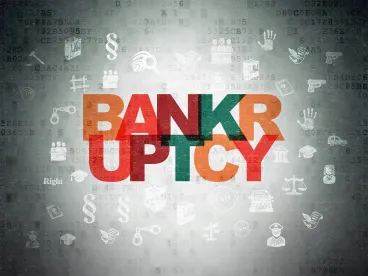The bankruptcy court overseeing the Lehman Brothers chapter 11 cases rejected efforts by Lehman Brothers Special Financing Inc. (LBSF) to recover roughly $1 billion in payments made to numerous noteholder defendants from the liquidation of collateral originally pledged to secure both obligations under notes issued by special purpose entities and credit default swap (CDS) obligations to LBSF, holding that the termination of the swap and liquidation and distribution of the collateral were protected by the Bankruptcy Code’s safe harbor. Bankruptcy Judge Chapman’s predecessor in the Lehman cases, Judge Peck, had previously ruled in proceedings involving similar transactions that a provision in the agreements which, upon an LBSF default, “flipped” the payment priority under which obligations to LBSF under in-the-money CDSs were entitled to collateral proceeds (Swap Priority) before the noteholders were entitled to such proceeds (Noteholder Priority) was an unenforceable ipso facto provision. Judge Peck held that the “flip” from Swap Priority to Noteholder Priority altered LBSF’s rights based on a bankruptcy event default and that the priority provisions and distribution of the collateral proceeds were not protected by the safe harbor applicable to swaps in section 560 of the Bankruptcy Code. In doing so, Judge Peck also found that the chapter 11 filing by Lehman Brothers Holdings Inc. (LBHI) on September 15, 2008, and the subsequent chapter 11 filing by LBSF on October 3, 2008, was a “singular event” by an “integrated enterprise” such that even though LBSF’s bankruptcy filing had not occurred at the time of a default triggered by LBHI’s bankruptcy filing, the flip provision still violated the ipso facto restrictions in the Bankruptcy Code.
In the current case, the court analyzed two types of provisions involving Swap Priority and Note Priority waterfalls—Type 1 and Type 2—and characterized the transactions as follows: (1) “pre-pre” transactions where both early termination of the swap and distributions of collateral occurred prior to LBSF’s bankruptcy; (2) “pre-post” transactions where early termination occurred prior to LBSF’s bankruptcy but collateral was distributed after LBSF’s bankruptcy; and (3) “post-post” transactions where early termination and distribution of collateral both occurred subsequent to LBSF’s bankruptcy. The timing of the collateral distributions, which varied, was held not to matter—it was the date of early termination that mattered. Accordingly, pre-pre and pre-post transactions did not yield different analyses by the court.
Judge Chapman held that in Type 1 transactions, which, coincidentally, were all “post-post” transactions, the flip to Noteholder Priority violated the ipso facto provisions because LBSF had a pre-bankruptcy right to Swap Priority that was fixed at the outset of the transaction and wasaltered by LBSF’s bankruptcy default. Type 2 transactions, however, did not violate the ipso factoprovisions because LBSF did not have a pre-determined right to payment that was altered by its default—which of the two priorities would apply in a Type 2 transaction was not determined until the swap was terminated and, accordingly, LBSF’s rights were not “altered” by its default.
The court alternatively held that even if the choice of Noteholder Priority in Type 2 transactions was an ipso facto modification, for both “pre-pre” and “pre-post” transactions, the modification of LBSF’s rights based on LBHI’s earlier bankruptcy filing would have occurred prior to LBSF’s bankruptcy (before ipso facto prohibitions applicable to LBSF were in place) and thus were not violative of the Bankruptcy Code. She expressly declined to adopt Judge Peck’s much criticized “singular event” analysis.
Most importantly, however, the court went on to conclude, unlike Judge Peck, that the distribution of the collateral or its proceeds, and the enforcement of the alternate priority provisions, were protected by the safe harbor applicable to swaps under section 560 of the Bankruptcy Code. The court held that “liquidation” of a swap under the safe harbor carried with it not only the right to terminate the swap and liquidate the collateral, but the right to determine “which party was owed how much,” and to distribute the proceeds of liquidation accordingly.
Lehman Brothers Special Financing Inc. v Bank of America National Association, et al., Adv. Proc. No. 10-03547 (Bankr. S.D.N.Y. June 28, 2016).




 />i
/>i

